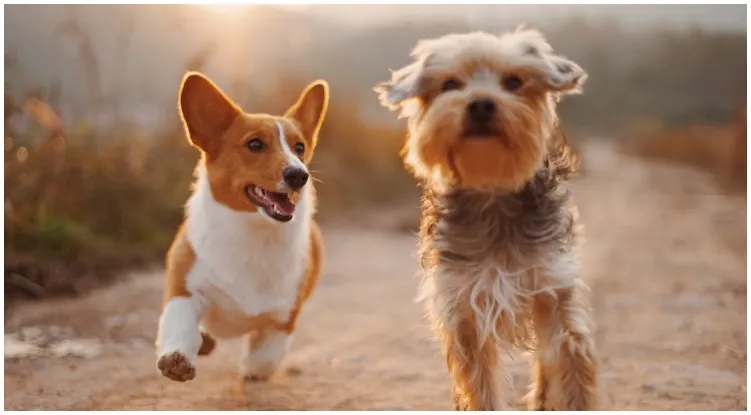Walking your dog in the dog park can be the perfect way to calm down and rewind. Well, unless your dog freaks out at every other dog that he meets there. But if that is the case, are there some ways to help? Is there a way on how to train your dog to ignore other dogs?
Luckily, yes there is! We can basically train our dogs to do anything (Well, if you can’t an expert dog trainer might). So training your pup to be calm when running across other dogs isn’t too far fetched at all — it’s totally possible.
Also read: GSD Service Dog: Training And Tips
If you want to finally be able to walk your dog in peace and not having to worry about the other pups that will come your way we have some answers.
It will definitely take some time, but don’t worry. These training methods are very uncomplicated and can be easily done even by people that don’t have too much experience. Hopefully, you and your buddy will soon be able to walk in peace.
Why you should train your dog to ignore other dogs
Investing time in training your dog properly can make your life so much easier. A canine that behaves appropriately while meeting other dogs won’t only make you feel safer, but also prevent all possible accidents and injuries that could happen in those scenarios. Dogs can hurt and injure each other even if it’s just from the excitement from seeing their furry friends.
Also read: How to train your dog to walk on a leash and much more!
That’s why starting to train your dog in time can save you so much trouble. However, even if your dog is an adult or senior — don’t lose your motivation. Older dogs can also be trained, and sometimes it’s even easier to do than with puppies. Especially if your dog already underwent some kind of training in the past.
How to train your dog to ignore other dogs?
To train your dog into ignoring other dogs while in a dynamic or unfamiliar situations you will need a lot of patience and time.
The two additional things that you will need are:
- A leash for walking
- Treats to reward your dog
- And maybe something to calm yourself down while doing it
Also read: Dog Training: Teach Your Dog 5 Basic Commands
The three most common methods of training your dog to ignore other dogs are: The attention-reward method, the friend method and the nudge method.
We will go over each one of them and explain the basics that you will have to know in order for them to be successful.
The Attention — Reward Method
Before going out on a walk, call your dog by his name. If he looks at you, give him a treat. Repeat this process several times until he regularly looks at you when you call his name.
Start out by a good distance walk. That means that you have to keep your dog at quite a distance from other canines while on a walk. Now, while on outdoor walks, try calling your dog’s name whenever he looks at another pup. If he looks at you — give him a treat.
Also read: How To Teach A Dog To Stay?
Slowly and over time make sure that your dog gets closer and closer to the other dogs. When getting closer, still call your dog’s name and give him a treat when he looks at you.
Over time your dog should learn to stay calm when you call his name and that he is going to get a treat when he is keeping his cool.
The Friend Method
Ask your fellow dog owner friends to bring their dogs over for a training session.
Put your dog on a leash and stand beside him. Ask your friends to walk their dogs past you and your canine, and then each time your dog reacts to another pup — tell him NO and command to sit. If he does sit, give him a treat.
Also read: How often do you walk your dog?
A training season should last no longer than 30 minutes and you can even do something similar while being in the dog park with your friends.
The Nudge Method
For this method you will have to stay calm and cool yourself, because our dogs really can sense our emotions.
When your dog starts to lunge at another dog after seeing him in public, don’t pull on your dog’s leash. If you do pull, it will only make your dog pull harder.
Also read: How to teach a dog to roll over
Instead of that gently nudge your dog to the side and give him a treat if he actually sits.
If your dog does not back down, use a sharp tug on his leash while calling your dog’s name. Once he does calm down — reward him with a treat.

